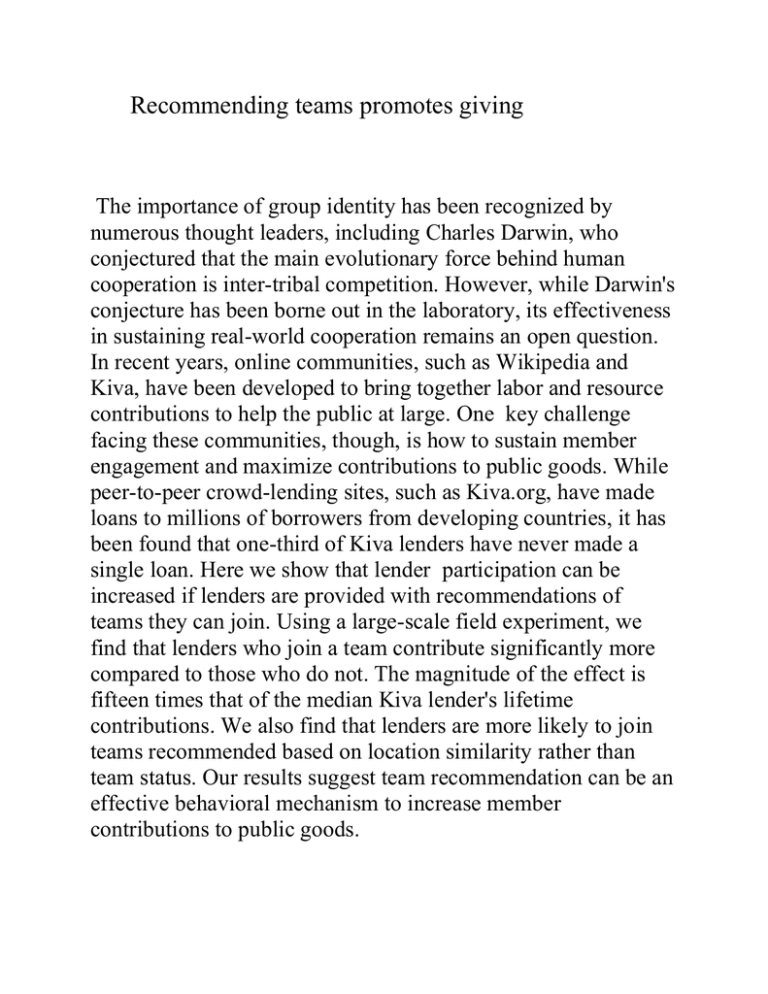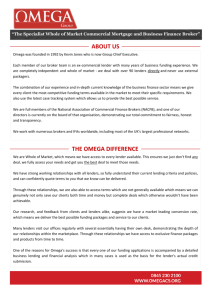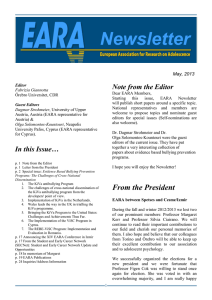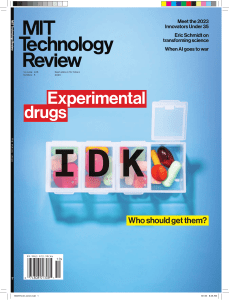Recommending teams promotes giving
advertisement

Recommending teams promotes giving The importance of group identity has been recognized by numerous thought leaders, including Charles Darwin, who conjectured that the main evolutionary force behind human cooperation is inter-tribal competition. However, while Darwin's conjecture has been borne out in the laboratory, its effectiveness in sustaining real-world cooperation remains an open question. In recent years, online communities, such as Wikipedia and Kiva, have been developed to bring together labor and resource contributions to help the public at large. One key challenge facing these communities, though, is how to sustain member engagement and maximize contributions to public goods. While peer-to-peer crowd-lending sites, such as Kiva.org, have made loans to millions of borrowers from developing countries, it has been found that one-third of Kiva lenders have never made a single loan. Here we show that lender participation can be increased if lenders are provided with recommendations of teams they can join. Using a large-scale field experiment, we find that lenders who join a team contribute significantly more compared to those who do not. The magnitude of the effect is fifteen times that of the median Kiva lender's lifetime contributions. We also find that lenders are more likely to join teams recommended based on location similarity rather than team status. Our results suggest team recommendation can be an effective behavioral mechanism to increase member contributions to public goods.






